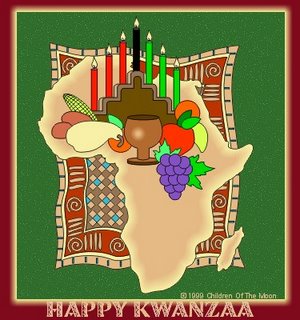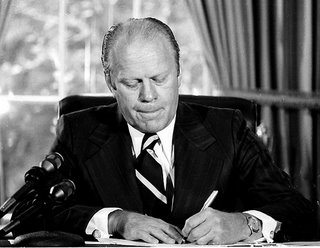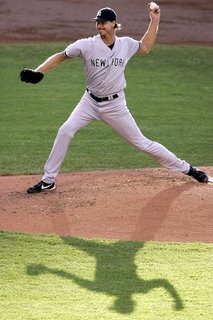 Paul Hollander
Paul Hollanderhttp://www.FrontPageMag.com
December 29, 2006
The recent case of the lacrosse players at Duke University accused of raping a young black woman brings to mind the case of Tawana Brawley, the black teenager who in 1988 made similar charges against a group of white men in Wappinger Falls , NY.
In both cases, what turned out to be unfounded charges were widely given credit and generated immense publicity; celebrities and politicians rallied to the cause of the alleged victims, lengthy and costly legal investigations followed, and at last it emerged that the accusations were groundless. In both incidents, the charges were seized upon as self-evident, incontrovertible proof of the incorrigible and ineradicable racism that continues to permeate and infect every pore of American society.
On the Duke campus, the incident was seen, at least initially, as proof not only of the ingrained racism of American society but of other evils as well, such as sexism and “classism.” Rallies, demonstrations, protest marches and candlelight vigils were held and demands were made on the administration of the university to combat racism with greater determination. “On a single day in March 550 news outlets featured some version of the story.” [1] The incident was said to be a “wake up call against sexual assault,” and “enraged students raised questions about their safety on campus.” [2] Members of the faculty were in the forefront of those denouncing American society and its endemic racism. 88 members of the faculty "issued a statement in April saying 'thank you' to the protesters who had branded the players rapists." [3]
Protestations of the presumed innocence of the accused were often brushed aside; they were white, upper middle class males accused by a poor black female. The black female in question worked for an escort service (a widely used euphemism for prostitution) and attended the lacrosse players’ social gathering as an “exotic dancer.” It is doubtful that similar attention would have been generated if the alleged rape victim had been white since being black and female has, for some time, been the quintessential defining attribute of authentic victimhood.
The long and indisputable legacy of mistreatment and discrimination black people suffered explains the continued, ready acceptance of claims of victimization also enshrined in compensatory legislation, known as affirmative action. White guilt has been an understandable, but increasingly questionable response to this historical record.
According to the President of Duke, “the lacrosse episode... put into high relief deep structures of inequality in our society - inequalities of wealth, privilege and opportunity...and the attitudes of superiority these inequalities breed.” The Vice Provost said that “whatever we have been doing to address these problems [race, class, sex and privilege] has been insufficient and needs to be redoubled and tripled.” A law professor who was also the chair of the Academic Council asked:
“Have we tolerated behavior that would cause people to believe that they can treat other people without respect?” [4] The Raleigh News and Observer concluded that the situation has exposed serious issues of race, gender and class division.” [5]
An article in The New Yorker reported that
“Much of the bitterest vitriol came from members of the Duke faculty who were willing to assume not only the players’ guilt but theuniversity’s. At a session of the Academic Council Brodhead, [thepresident] was roundly assailed for not taking decisive action againstthe team and one professor... urged him to confess publicly that Dukewas a racist and misogynist institution. Houston Baker, an Englishprofessor...asserted in a letter (he subsequently made public)to...the Provost, that at Duke, white male athletes were “veritablygiven license to rape, maraud, deploy hate speech” and excoriated theuniversity for its complicity in the “sexual assault, verbal racialviolence and drunken white male privilege loosed amongst us.” [6]
It should be noted that the Duke faculty was not unanimous in harboring such sentiments. There were those willing to remind the public of presumptions of innocence, and James Coleman, in particular, another law professor, was highly critical of the handling of the case by the district attorney who characterized the accused as “a bunch of hooligans.” [7]
While the Duke case is not yet officially closed, the charges of rape have been dropped (but not those of sexual assault and kidnapping). The accuser ha expressed a new uncertainty about the nature of the incident and, moreover, DNA tests have indicated that the lacrosse players had no sexual contact (that could be defined as rape) with the accuser but that she had such contact with others prior to the time of the alleged rape. [8]
Unlike in the Tawana Brawley case, in North Carolina the district attorney gave every indication of a politically motivated urge to indict the accused and he pursued his case with an ethically dubious zeal (which included withholding information from the defense and using questionable methods for identifying the alleged wrongdoers). He was running in an election and appeared to seize the opportunity to display his anti-racist credentials for the benefit of black and liberal voters. It worked and he won re-election.
After several decades of compensatory legislation, the revamping of curricula in all educational institutions, virtually universal reverse discrimination (known as “affirmative action”) and a wide range of indicators that both official and unofficial racism has greatly diminished, demagogues like Al Sharpton continue to make lifelong careers out of mining white guilt and this guilt shows little decline, as the Duke incident also suggests. Why should this be the case?
It is reasonable to suspect that when the dust settles and it becomes widely known and fully acknowledged that the accusations against the lacrosse players were questionable and probably altogether groundless, those who had been convinced of the truthfulness of the charges will fall back on the reasoning that was offered by professor Stanley Diamond in 1988 in the aftermath of the Tawana Brawley case:
“The case cannot be measured by legal canons, official justice orreceived morality... The grand jury has responded to the technicalquestions of the case, weighing the evidence but necessarily blind toits deeper meanings. In cultural perspective, if not in fact, itdoesn’t matter whether the crime occurred or not...What is mostremarkable about this faked crime is that traditional victims havere-created themselves as victims in a dreadfully plausible situation.” [9]
The point of view quoted is likely to originate in deep reservoirs of sympathy and guilt for the past sufferings of the “traditional victims” which resist being drained by the evidence of substantial social and cultural change. This resistance may be linked to sentiments of enlightened moral superiority which manifests itself in the eager and profuse admissions of guilt. To feel guilty for the sins of one’s ancestors (or fellow citizens) and to dwell on this guilt in public is a lofty and attractive moral position not easily abandoned.
Many academic intellectuals’ sense of identity rests the role of the virtuous social critic, on “conspicuous compassion,” and the associated readiness to renounce society for a variety of sins.
But wallowing in guilt is not necessarily the best guide to action or policy or even to self-esteem.
Overwhelming feelings of guilt resulted in the policies of reverse discrimination, in new injustices, when in a variety of competitive situations a middle or upper class black person is given automatic preference over a similarly (or better) qualified poor or lower class white one on account of the color of his skin and the sufferings of his ancestors.
White guilt is complemented and validated by the self appointed spokesmen of the black population who thrive on and make abundant use of what Shelby Steele called “the victim-focused identity.” The position of the innocent victim is even more compelling morally and psychologically than that of the righteous critic of society confessing his guilt - it provides a self-evident, unchallengeable moral high ground. At the same time, considerable material and social status benefits follow from the legally certified and institutionalized victim identity.
When white guilt converges with attachment to the victim identity there will be an enlarged, reflexive receptivity to the claims of the likes of Tawana Brawley and “the exotic dancer” at Duke University. It may be time for an emotionally satisfying white guilt to give way to more careful considerations of right and wrong which are not automatically determined by the skin color of either the wrongdoer or his victim.
Paul Hollander has written several books dealing with the political attitudes and political morality of American and other intellectuals, most recently The End of Commitment. Revolutionaries, Intellectuals and Political Morality. (2006)
Notes:
1. Duke Magazine, May/June, 2006.
2. Duke Chronicle online, March 29, 2006.
3. "At Law," Wall Street Journal, December 27, 2006.
4. Duke Magazine, May/June 2006.
5. Quoted in New Yorker, September 4, 2006.
6. Peter S. Boyer: "Letter from Durham," New Yorker, September 4, 2006.
7. Raleigh News Observer, March 29, 2006.
8. New York Times, December 23, 24, 2006.
9. Stanley Diamond: "Reversing Brawley," The Nation, October 31, 1988.













